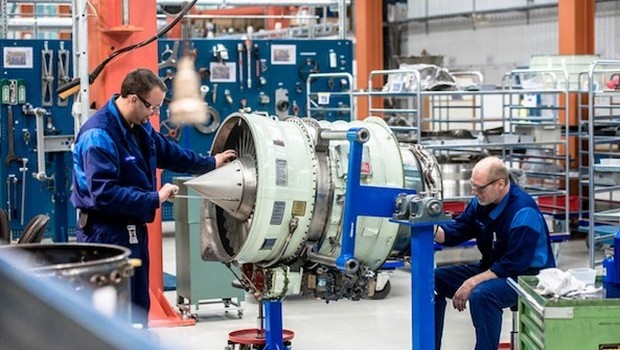Melrose shares take off as aftermarket work boosts revenues
Boeing, Airbus delays boost demand for parts

Shares in Melrose spiked on Monday as the UK aerospace company reported a rise in revenues driven by aftermarket demand in its engines division, particularly in defence.
FTSE 100
8,084.61
17:04 20/12/24
FTSE 350
4,463.29
17:14 20/12/24
FTSE All-Share
4,421.11
17:04 20/12/24
General Industrials
7,406.54
17:14 20/12/24
Melrose Industries
547.20p
17:09 20/12/24
Revenue rose 7% in the four months to October 31, with aftermarket up 32% year on year although original equipment (OE) volume growth remained constrained by industry-wide supply chain issues, Melrose said in a trading statement. Shares in the company were up 8% in London.
The company, which last year hived off its auto and other businesses to focus on aerospace, held annual guidance and still expects adjusted operating profit £550m - £570m, adding that it was on track to hit a £700m profit target in 2025.
Delays at aircraft manufacturing giant Boeing have created supply chain issues in the industry, boosting demand for Melrose's parts for older aircraft maintenance.
Melrose's structures unit, which deals with airline bodies and wings of planes, saw revenues rise by 1%, reflecting the planned exit of non-core work, customer destocking and industry-wide supply chain challenges affecting OE production rates.
"Defence repricing and business improvement actions, which are focused on this division, are coming through as planned. Restructuring programmes are on track and are nearing completion, which will result in a significant reduction in associated cash spend in 2025," the company said.
Aarin Chiekrie, equity analyst at Hargreaves Lansdown said production troubles at Airbus and quality issues at Boeing had dented delivery timelines.
"There’s not a great deal Melrose can do about this - supply chain issues have been a challenge for the whole industry and the problem’s likely to persist for some time," he said.
"Melrose is pulling other levers to streamline operations and offset this impact though. The ongoing restructuring programme is nearly complete and should result in a significantly lower drag on its cash resources in the new year. Looking further ahead, there are some tailwinds blowing in its favour."
"Contract repricing and new commercial agreements mean there’s room for growth to really step up in the near-to-medium term.”
Reporting by Frank Prenesti for Sharecast.com